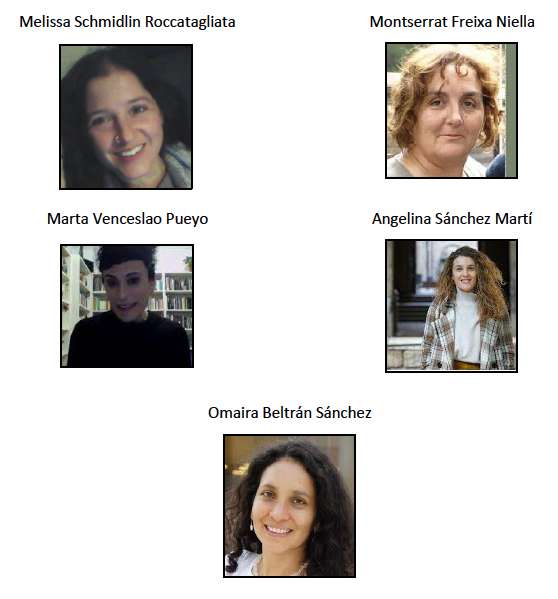1st WEB SEMINAR OF THE CATALAN JOURNAL OF PEDAGOGY: “Education and COVID: A turning point for young migrants and the practicum in pedagogy and the pedagogy practicum”

1 December 2021, from 6 to 7.30 p.m.
For registration: https://www.iec.cat/jornades/covideducacio2021.asp
At times like the present, it is relevant to question the scientific and professional educational community about the phenomenon of COVID-19 and the repercussions it has on the pedagogical field. In this increasingly changing and innovative society, pedagogy must be able to deploy competencies with large margins of uncertainty. On the part of practice organisations and working professionals, an organisational context and a framework of professional requirements are offered in which students are expected to appreciate the situation of demand, reflect, and face up to the activity they are called upon. From this approach, the Revista Catalana de Pedagogia invites you to its first webinar, which will focus on two of the most read articles published recently:
SCHMIDLIN, M; VENCESLAO, M; BELTRÁN, O; FREIXA, M.; SÁNCHEZ, A. (2020). “Infants i joves que migren sols en temps de COVID-19. Una mirada des dels serveis”. Revista Catalana de Pedagogia, núm. 18, p. 13-28. DOI: https://doi.org/10.2436/20.3007.01.147
Full article: http://revistes.iec.cat/index.php/RCP/article/view/148270/146068
RAJADELL, N; ANEAS, A; MÉNDEZ, J.; FERRÉ, M. (2021). “Balanç de deu anys del pràcticum de pedagogia a la Universitat de Barcelona”. Revista Catalana de Pedagogia, num. 19, p. 3-23. DOI: https://doi.org/10.2436/20.3007.01.155
Full article: http://revistes.iec.cat/index.php/RCP/article/view/148523/146788
Moderated by Ruth Vilà Baños:

Abstracts
Unaccompanied migrant minors in times of COVID-19. The view from the institutions
The COVID-19 pandemic is acting as a magnifying glass that allows us to see more clearly both the weaknesses of the contemporary public social protection system and the vital importance of institutions and professionals in the social field at a time when the most vulnerable population segments have been particularly hard hit. In this respect, the main purpose of this paper is to make visible the situation of unaccompanied migrant minors in Catalonia, especially during the COVID-19 pandemic. To do this, we conducted a descriptive qualitative study that forms part of a broader R&D project funded by the Ministry of Science and Innovation (RTI2018-095259-B-I00, MCIU/AEI/FEDER, UE). The study was based on semi-structured interviews addressed to members of the Public Administration, technicians and/or educators from different entities and institutions in the Catalan territory. The results point out numerous challenges, situations of vulnerability and needs of these minors that have increased with the pandemic. The findings demonstrate the need for an urgent response from government institutions and highlight the need for more intensive networking and a greater deployment of competences and skills with respect to social justice.
Authors and speakers:
10-year balance of the Pedagogy practicum at the University of Barcelona
This article presents a narrative review of the scientific production generated over the last 10 years by the coordination department of the Pedagogy degree practicum at the University of Barcelona, through the consolidated teaching innovation group PRAXIS. Following a bibliometric approach, a total of 14 articles and numerous participations in conferences and book chapters were detected from 2010 to 2020. These are presented in chronological order and allow a critical reflection on the PRAXIS group’s 3 lines of constant analysis: curriculum, methodology and evaluation. These aspects, which have led to the current model of external internships, have been addressed in a transversal and continuous way in the different publications stemming from the group’s activity. This review, however, has allowed three historical stages to be detected in which the focus has been on one of these thematic lines over time. After establishing these stages, the historical development of the research carried out in relation to each of the three lines is presented. With the evidence extracted from the research, we validate the functionality of the internship model and its possible transfer to other universities. Lastly, contemplating the situation of exceptionality caused by the Covid-19 pandemic and the new educational challenges that derive from it, the coordination of the practicum proposes orientations of change and improvement, identifying possible new lines of research that may guide the Practicum’s endeavours to meet the challenges posed in the current situation and in the long term.
Authors and speakers:


